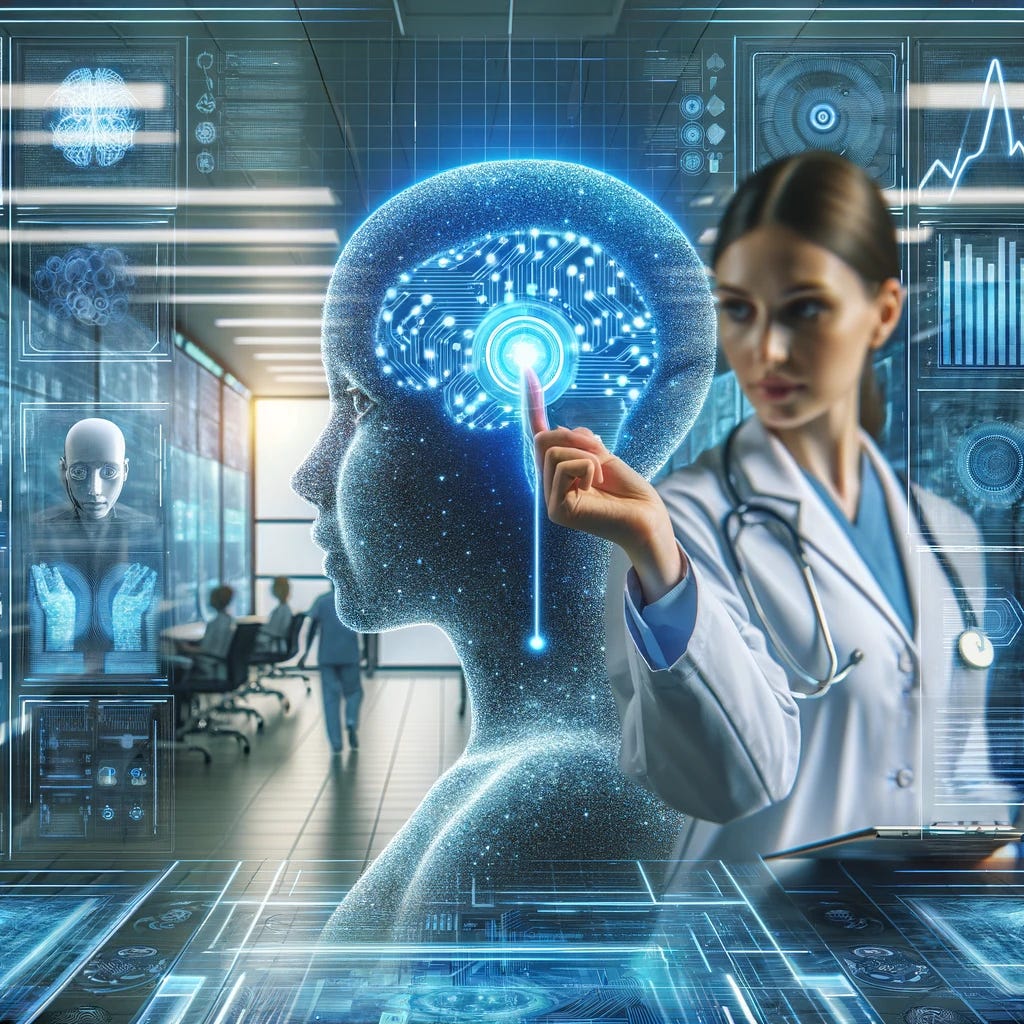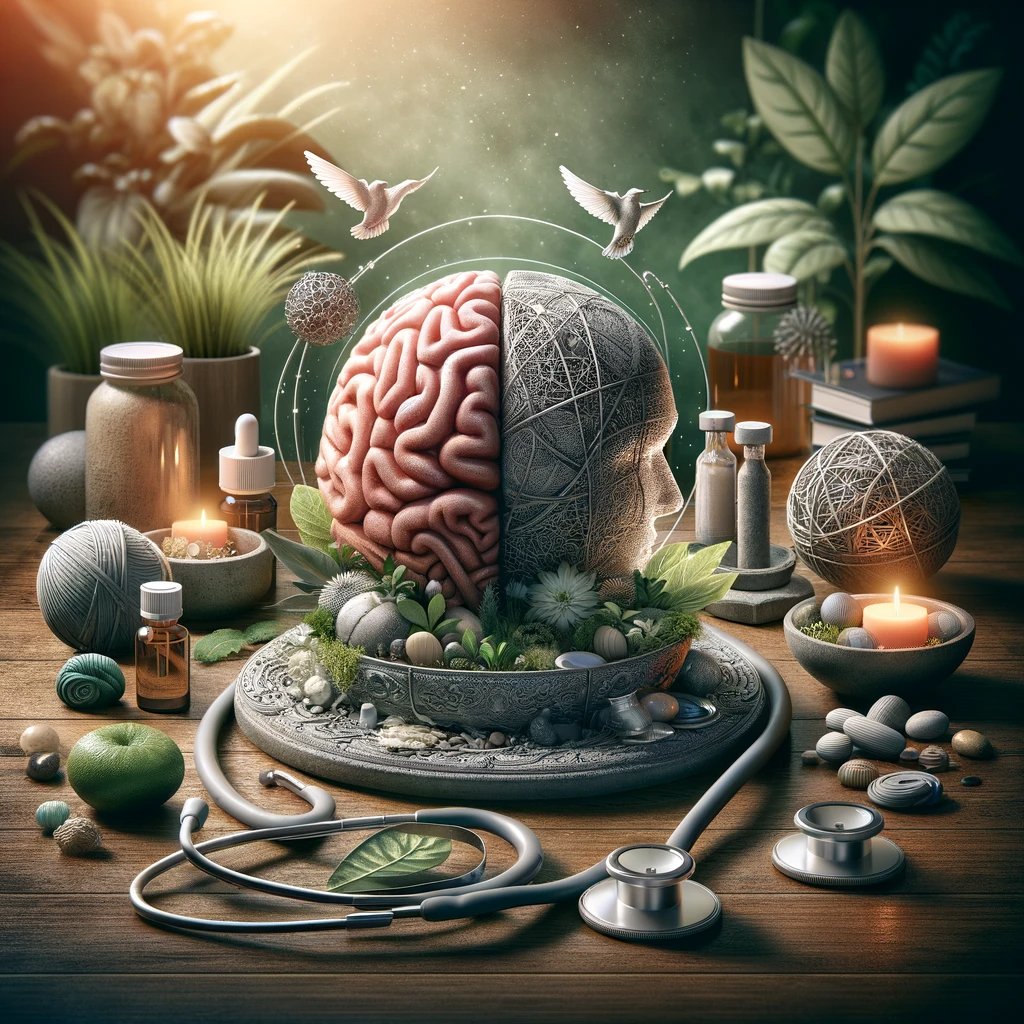AI and the Future of Healthcare: Revolutionizing Mental Health Integration Within Two Years
AI and the Future of Healthcare: Revolutionizing Mental Health Integration Within Two Years

In recent years, the intersection of medicine and mental health has garnered increasing attention, highlighting a crucial gap in our healthcare system. Despite the interconnectedness of physical and mental well-being, treatments for these domains often operate in silos. This separation not only complicates the patient care process but also overlooks the nuanced interplay between physical and psychological health. However, the advent of Artificial Intelligence (AI) holds promising potential to bridge this gap. AI’s capacity for processing vast datasets, identifying patterns, and offering predictive insights can revolutionize the way we approach integrated healthcare. Within the next two years, AI technologies are poised to transform mental health treatments by enhancing diagnosis accuracy, personalizing treatment plans, and improving patient outcomes. This article aims to explore the current state of mental health treatments, the transformative role AI can play, the challenges faced in integrating AI into healthcare, and envision the future landscape of a unified approach to treating the mind and body.
Current State of Mental Health Treatments
Traditional Modalities and Their Limitations
Mental health treatments have traditionally relied on a combination of psychotherapy, medication, and community support. While effective for many, these methods come with limitations. Accessibility issues, one-size-fits-all approaches, and stigma continue to hinder the widespread adoption and success of these treatments. Additionally, the disconnection between mental health professionals and medical practitioners often leads to fragmented care for patients dealing with comorbid conditions, complicating their treatment plans and recovery processes.
The Growing Need for Integration
The prevalence of mental health conditions globally underscores the urgent need for an integrated approach to healthcare. Conditions like depression, anxiety, and substance abuse frequently coexist with chronic physical illnesses, requiring a holistic treatment strategy that addresses both physical and mental health concurrently. The current healthcare landscape, with its compartmentalized services, falls short of meeting this need, leading to calls for a more unified and patient-centric approach.
The Role of AI in Bridging the Gap

AI Technologies: A Primer
At the heart of AI’s potential to transform healthcare are technologies like machine learning, natural language processing, and computer vision. Machine learning algorithms can sift through vast amounts of healthcare data to identify patterns and predict outcomes, offering unprecedented insights into patient health. Natural language processing allows for the analysis of patient speech and written words to aid in early diagnosis and personalized treatment plans, while computer vision can analyze images for diagnostic purposes.
Addressing Current Limitations
AI can tackle many of the limitations faced by traditional mental health treatments. For instance, AI-driven apps can offer personalized therapy sessions based on the user’s interactions and progress, making mental health support more accessible and tailored to individual needs. Predictive analytics can enhance early detection of mental health issues by analyzing data points from electronic health records (EHRs), social media activity, and wearable devices. Furthermore, AI can facilitate a more integrated healthcare approach by providing platforms that seamlessly combine medical and psychological data, offering a comprehensive view of a patient’s health.
AI Innovations in Mental Health
The integration of AI into mental health care is not a futuristic dream but a burgeoning reality. Innovations in AI are already making significant inroads into mental health treatment, offering hope for more effective and accessible care.
Chatbots and Virtual Therapists
AI-powered chatbots and virtual therapists are becoming increasingly sophisticated, providing 24/7 emotional support and coping strategies to users worldwide. These AI tools are designed to mimic human conversation, offering empathy and support to individuals experiencing anxiety, depression, and stress. While not replacements for human therapists, they serve as valuable resources for immediate, stigma-free support.

Predictive Analytics for Early Intervention
One of the most promising applications of AI in mental health is predictive analytics. By analyzing patterns in behavior, social media usage, and health data, AI algorithms can predict the onset of mental health issues before they become severe. This early intervention approach has the potential to significantly alter treatment paradigms, allowing for timely support and intervention, potentially averting crises.
Personalized Treatment Recommendations
AI’s ability to analyze complex datasets extends to personalizing treatment recommendations. By considering a patient’s medical history, genetic factors, lifestyle, and preferences, AI can suggest customized treatment plans that have a higher likelihood of success. This level of personalization is unprecedented in traditional treatment methods and represents a significant leap forward in mental health care.
Challenges and Ethical Considerations
While AI’s potential in mental health care is immense, it comes with its set of challenges and ethical considerations that must be navigated carefully.
Data Privacy and Security
The use of AI in healthcare raises significant concerns regarding data privacy and security. Sensitive patient information, if not adequately protected, is vulnerable to breaches, which can have severe consequences for individuals. Ensuring robust data protection measures and maintaining patient confidentiality is paramount.
Algorithmic Bias and Equity
AI systems are only as unbiased as the data they are trained on. If the data contains inherent biases, the AI’s decisions and recommendations will reflect these biases, potentially leading to inequitable treatment outcomes. Ensuring diversity in training data and continuously monitoring for bias is crucial to mitigate these risks.
The Human Touch in Healthcare
Amidst the digital transformation, the importance of the human element in healthcare cannot be understated. AI should augment, not replace, the empathetic and nuanced care provided by human professionals. Balancing technology and human touch will be a critical challenge as AI becomes more integrated into mental health care.

Conclusion: Envisioning the Future
The integration of AI into the nexus of medicine and mental health heralds a new era of healthcare. Over the next two years, we can expect to see more personalized, accessible, and effective treatments emerging, driven by AI innovations. However, navigating the ethical and practical challenges of this integration will be key to realizing its full potential. By fostering collaboration between technologists, healthcare professionals, and ethicists, we can ensure that AI serves as a force for good in bridging the gap between medicine and mental health, offering hope and healing to those in need.
Dr. Jerry D. Smith Jr. is a clinical psychologist and empathic expert specializing in human empowerment and leadership.
More from Dr. Jerry Don Smith Jr. and Integrative Wellness Journal (IWJ)






